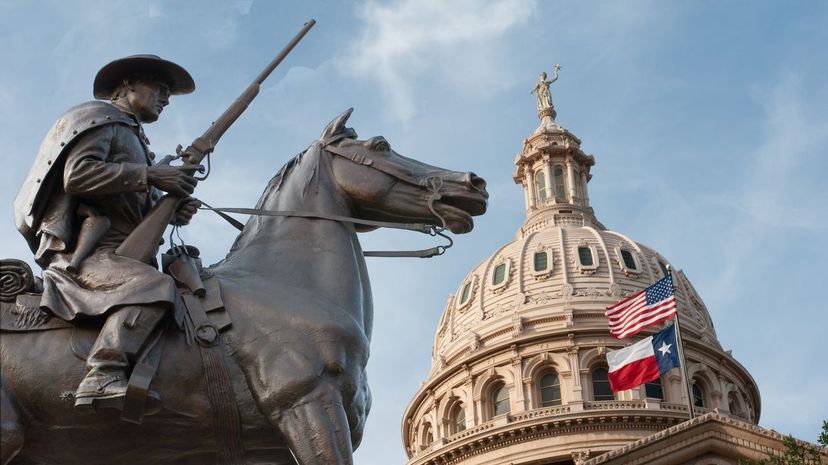
About This Quiz
Ever since the onset of swift communication, from newspapers to television to twitter, the English language has become increasingly homogenous. Across the United States, people sound more similar than dissimilar. American English used to be extremely specific to the region in which it was spoken. Dialects and accents across the United States had a deep local flavor that would make an outsider feel like the foreigner they were. Some dialect enthusiasts bemoan the loss of a unique spoken language that shows the lifeblood of the culture.
Apparently these people have never been to Texas, where the local dialect is alive and well and gives visitors the uncomfortable sense that they’ve walked into a diner where everyone turns to look at you because you’re “not from around here.” If you don’t know the feeling, then you haven’t been to Texas.
Of course, ya’ll may say that you’ve seen some of these terms elsewhere, that they’re not Texan. What you don’t know is that, yes, you may have heard it elsewhere, but that’s just because they stole it from Texas, the birthplace of the original language.
Well, stop yer caterwauling and join the shindig! Click on the quiz, and we'll teach you a thing or two about speakin’ right.

Everyone who has stepped a foot into the great state of Texas knows that y'all is the all-important second-person plural used whenever addressing more than one person. If you ever address a group and fail to use y'all, as in “you guys” or “you all” or, God forbid, “you’se guys,” you will be immediately outed as not Texan.

The true Texan response is, “He’s all hat and no cattle.” This phrase fits like a boot on Texan culture, where you see “cowboys” everywhere, but you can tell that it’s just an outfit, and they’re not about to set foot on a ranch.

The Texas dictionary would say that “Quit yer caterwauling” is the correct response here. The regular dictionary says that a “caterwaul” is a shrill howling or wailing noise, like the ones that cats make late at night when you’re trying to sleep. Texans know that’s how it sounds when someone won’t shut up about work that just needs to get done.
Advertisement

The can clearly “tumped over.” A Texan doesn’t spill their own can, especially not whilst playing darts. Sometimes cans have a tendency to tump over, and it just ain’t your fault. It sure is a crying shame though.

Oh, Billy, he’s always getting “sauced” at the dance hall. Urban Dictionary even knows that this is the correct term for someone who is “really really extremely intoxicated,” so they must be based in Texas.

“Sher-nuff” is Texan for “sure enough” and is not really ever spelled out. This is the spoken language in Texas for showing assent, communicating that you’re on the same page, and sometimes, trying to signal that you get it, and your friend can stop telling what to do now.
Advertisement

“Don’t have a conniption!“ is Texas lingo for “get over it” or “calm down.” A “conniption,” says the dictionary, is “informal, North American” for a “fit of rage or hysterical excitement. “North American” means “Texan.”
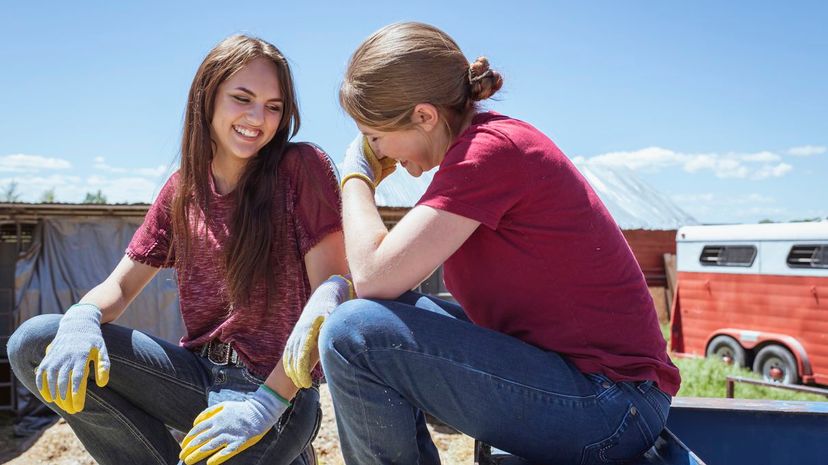
As anyone who has spent time in rural Texas knows, “bless their little heart” is not as kind or as simple as it seems on the face value. This phrase holds many meanings and can certainly be used as a term of affection. More often, though, it’s said to dampen the harshness of nasty gossip by acting kind.
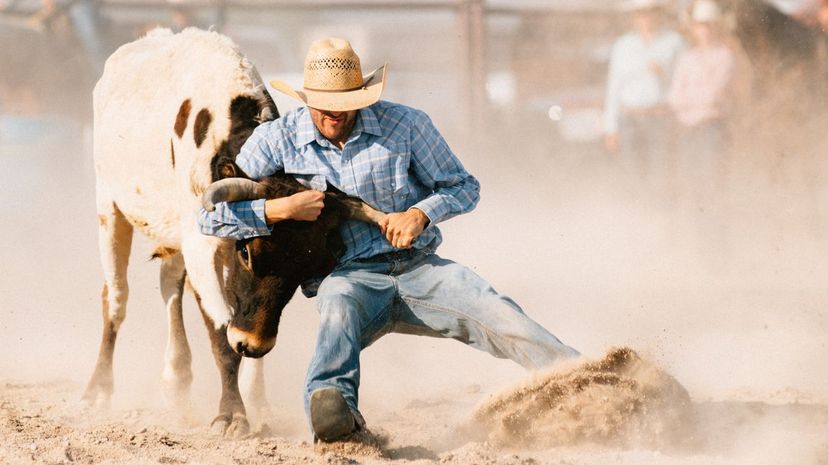
“Git ‘er done” is a very versatile phrase in Texas parlance, whose essential meaning is “Get her done, get the job finished.” Frequently, it means “you can do this” or “let’s do this.” Larry the Cable Guy made the phrase famous, but he probably learned it in Texas.
Advertisement
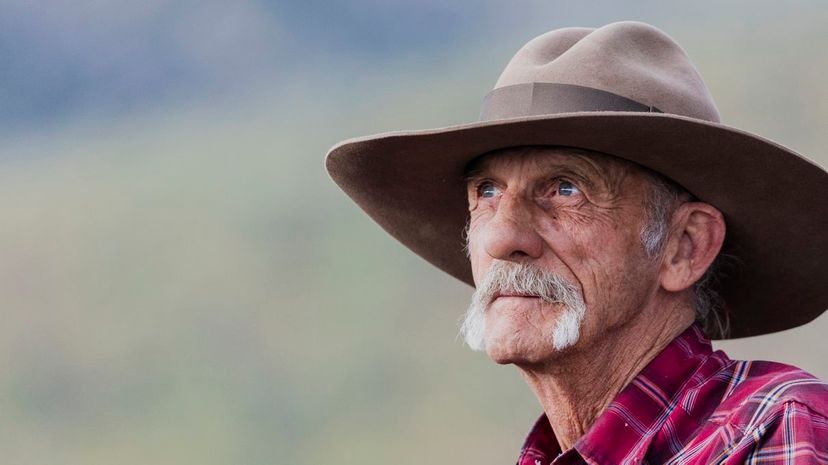
In Texas, you really don’t want someone’s grandpa to say that you’re “dumber’n dirt.” This statement has the equivalency of being called absolutely worthless, stupid, waste of time, waste of space. It’s not a “y’all come back now, ya hear?”

If someone hit you on a rural highway and didn’t even have the common Texas decency to stop and see if everything is alright, then you’d likely be “spittin’ mad.” This phrase means what it sounds like: so angry that you feel like spitting on something or someone.

“Darn tootin’” is Texan for “you’re absolutely right.” The phrase, according to the Word Detective, comes from a combination of a euphemism for “damn” and “tooting,” as in tooting a horn. This originally used to mean “you’re so right so should shout it from the mountain tops, blow the horns so everyone can hear you.”
Advertisement

The “honey pot” signals something highly desirable and possibly tasty and possibly also sticky. As the phrase intimates, getting “caught” means something illicit is going on, and someone got stuck with their hand in it.

The expression, common in some Texas circles, “I’ll be a monkey’s uncle,” expresses great surprise in a humorous way. The World Wide Word’s researchers speculate that the phrase actually hearkens back to the turn of the 20th century, as people were digesting Darwin’s surprising connections between monkeys and humans.

The Texan term for a tantrum that fits this setting is “a come apart.” The phrase beautifully describes what happens in a tantrum — everything comes apart at the seams and you’re left picking up all the pieces.
Advertisement

If your mother tells you she’s “gonna snatch you bald-headed,” you better shape up or run. She means she’s going to grab you by the hair and pull it all out. It’s a violent threat, but apparently a common thing to say.
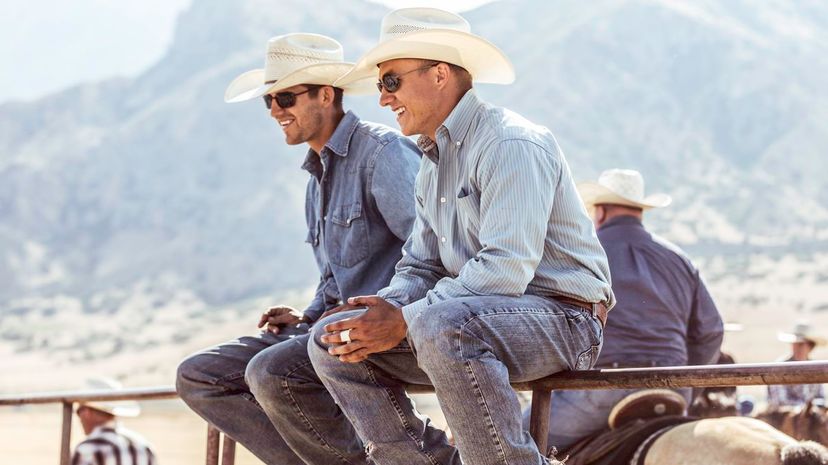
The “hoosegow” literally refers to prison or jail, but the word is used figuratively to stand in for the authorities that are out to get you and hold you back from what you want to do or what needs to be done.
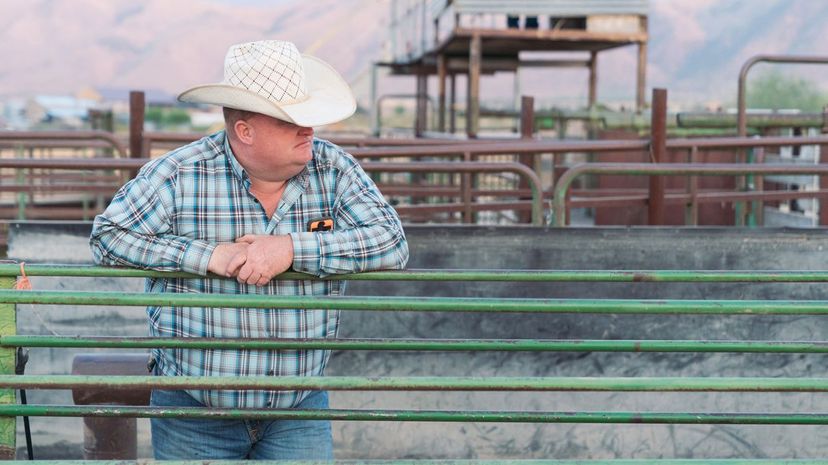
Every now and then, you may hear a Texan who doesn’t quite have the Texan charm and hospitality, whisper to an equally improper friend that someone is “big as a house.” There’s not a lot to unpack here; it’s just a statement of size.
Advertisement

Folks in Texas may invite you to a “shindig” if they’re having a party. The word comes from the early 19th century when it morphed from the word “shindy.” A “shindy” was a rowdy party, but the word originally just referred to a big commotion.
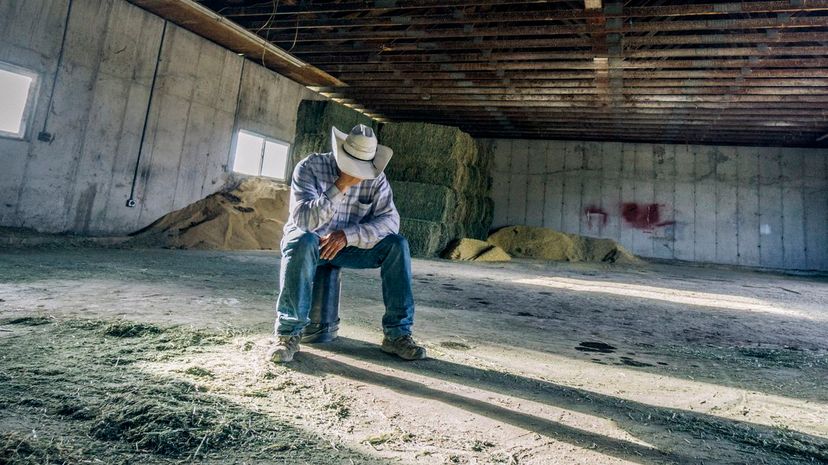
When a person exclaims, “Dad gum it!” they’re expressing extreme frustration or sometimes pain. The phrase began as a way to avoid saying, “God damn it!” in the 1940s. The expression is often associated with dads, a dad joke unto itself.

A true Texan would be most likely to use “fixin to” to describe an event that they planned to attend soon. Even though the words literally mean the same as “about to” or “planning to,” the connotation can be slightly, if ambiguously, different.
Advertisement

Lizzie probably told her boss that she was having a “sick spell.” The word spell designates an “indefinite period of time,” which is precisely what you need when you need to call in, and you don’t know how long you’ll be sick.

While “Idn’t that niiiice” could possibly mean lots of different things, the context here would lead a Texan to believe that Tasha was actually trashing her frenemy’s outfit while trying to appear to be kind to her.

Texans often use the phrase “rode hard and put up wet” to describe someone who looks like they’ve had a rough go of it. Like many Texas sayings, it goes back to horse riding terminology. A horse that’s been ridden hard and put away wet has not been cared for well.
Advertisement
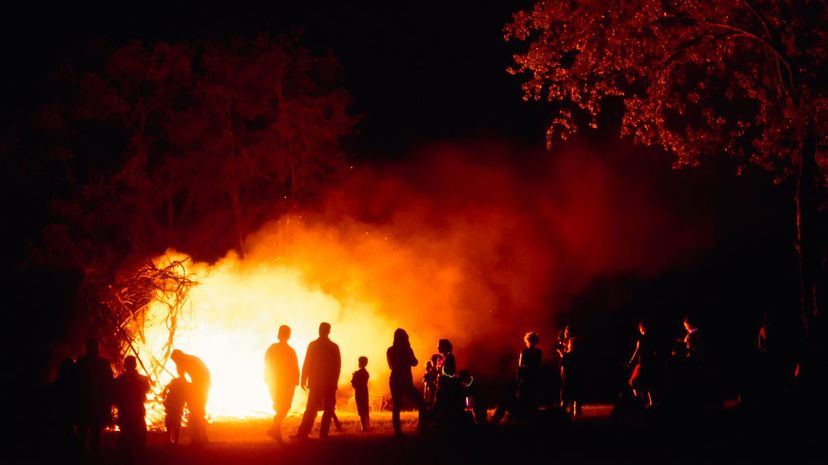
Texas high school graduates, at least in some rural regions, will be more’n likely to stay out “till the cows come home” on graduation night. The cows come home in the early hours of the morning because they need to be milked.

Texans use the term “barn raisin’” to describe a major throwdown party. Back in the day, the community would gather to help a neighbor erect a barn and then would all celebrate the hard-earned completion. Now it’s mostly just a party.
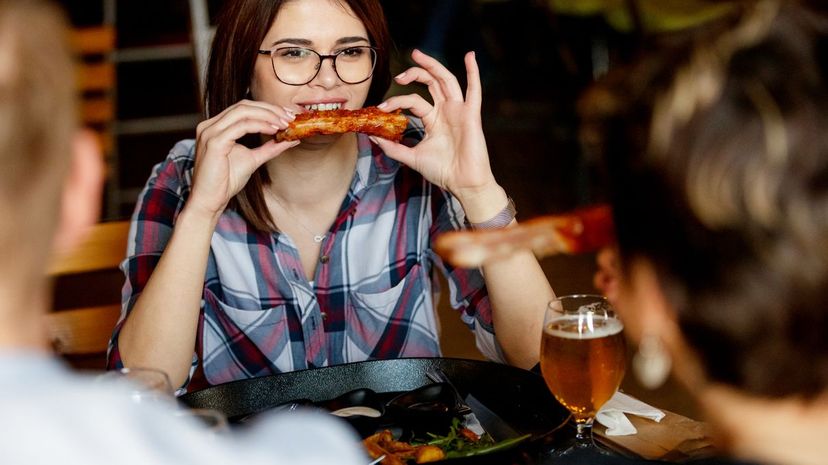
A Texan may judge a person who seems off, especially if that person has entered an intimate community establishment, like a BBQ joint, and will signal that the person does not fit in with the damning “just not riiight” comment.
Advertisement

If you leave that door open one more time, Grandma is going to level the accusatory, “Were you raised in a barn?” in your direction. Barn doors, of course, were often left open intentionally to let the animals in or out.

As vulgar as it may be, certain Texans will sometimes actually say “Well s&#* the bed!” to show that someone has really royally messed up a situation. This is a clear way to gesture toward an epic fail, but may not be appropriate in some settings.

Like so many Texan idioms, “you’re a real peach” has different innuendos depending on the context and the tone in which it’s delivered. People use this to say both “Thanks” and “Thanks, jerk.” You have to pay close attention.
Advertisement

A person who seems nice enough at first and then bites you on the ankle is known in Texas as a real “snake in the grass.” This makes perfect sense in a state where grass is full of potential for a venomous snake to ruin your day.
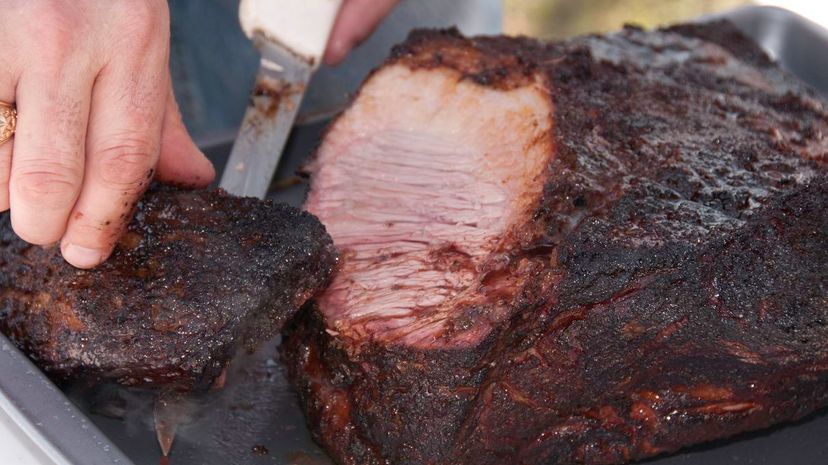
Burning up brisket is no joke. Smoking a brisket to perfection takes a full 15 hours of labor. And if you fall asleep on the job, you may well get “madder’n a wet hen.” Hens, in Texas at least, do not like to be wet.
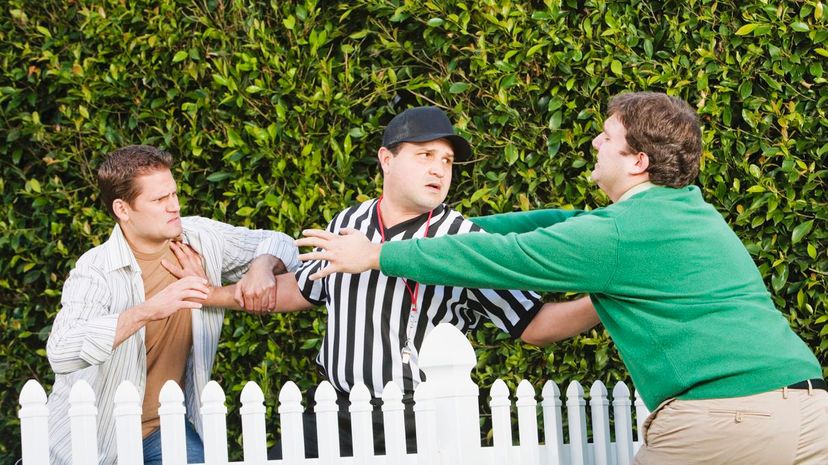
You just don’t want to be around that neighbor if they suspect foul play in the leaf-blowing department. There’s a very specific etiquette around leaf-blowing. And when someone messes it up, the neighbor is “meaner’n a rattlesnake,” which is deadly of course.
Advertisement

When Billy heard Joe say something about his wife behind his back, he got “bowed up.” The idiom here gives a clear image of a body that’s pulled taut and ready to spring into a fight. The phrase can also be used for a plethora of reasons, including being so busy you can’t even take a bathroom break.

This is a quintessential Texperience, and if you don’t know the feeling, then you haven’t been in enough small diners on country highways. When a stranger walks in, the sentiment that’s thick in the air is, “they’re not from aroun’ here.”